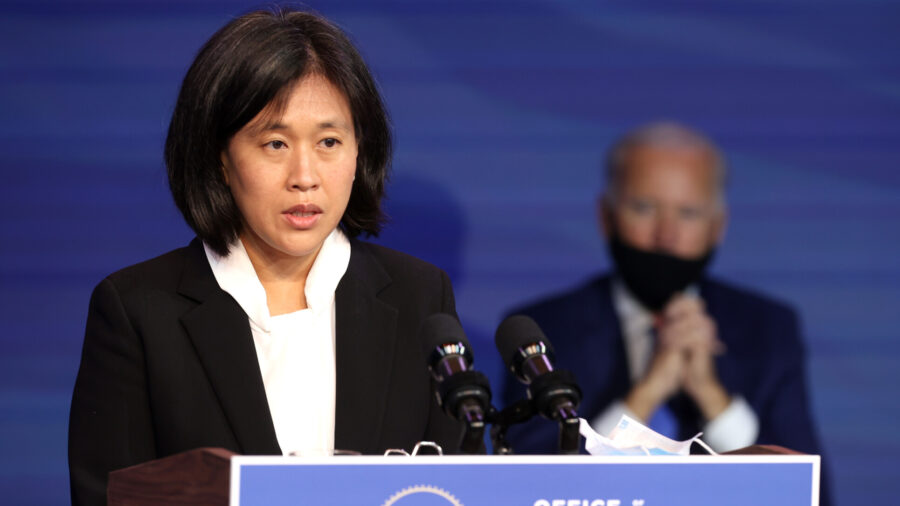WASHINGTON—The U.S. government on Wednesday vowed to continue battling what it sees as significant trade barriers that are harming American companies and farmers, and singled out Beijing as the “world’s leading offender” in creating overcapacities in several sectors.
The U.S. Trade Representative’s office said its annual report on the issue showed “significant barriers that present major policy challenges with implications for future U.S. growth opportunities, and the fairness of the global economy.”
It said it would engage with foreign governments on various issues that threaten U.S. exporters, including digital policies, agricultural trade barriers, and technical barriers.
It also vowed to work to address Chinese government subsidies that have created excess capacities in the steel, aluminum, and solar sectors, and could soon affect other industries.
The report made clear that U.S. Trade Representative Katherine Tai plans to continue the previous administration’s hardline approach to foreign trade practices that hamper U.S. export growth. She has promised to work more with U.S. allies.
U.S. trading partners have been waiting anxiously to meet with Tai and understand how the Biden administration will shift its trade policies after four years of disruptive tariffs imposed by the administration of former President Donald Trump.
The 570-page National Trade Estimate Report released Wednesday showed that Washington will continue to challenge communist China and other countries that impose trade barriers or other regulatory hurdles, and limit access to U.S. companies.
“China’s state-led approach to the economy and trade makes it the world’s leading offender in creating non-economic capacity, as evidenced by the severe and persistent excess capacity situations in several industries, including steel, aluminum, and solar, among others,” USTR said in a statement.
It said Beijing was “well on its way to creating severe excess capacity in other industries” by “doling out hundreds of billions of dollars” to support Chinese companies under its Made in China 2025 industrial plan and requiring them to achieve preset targets for domestic and global market share.
USTR said it would continue its bilateral and multilateral efforts to address such “harmful trade practices.”
It also raised concerns about data restrictions imposed by India, China, Korea, Vietnam and Turkey; software requirements in Russia; Indonesian tariffs on digital products; local content requirements in many countries and discriminatory tax measures in Austria, India, Italy, Spain, Turkey and Britain.
It said it would continue to engage foreign governments on policies that complicated the export of U.S. digital products and services, and undermined the ability of U.S. companies to move data across borders.
The report also cited continued concerns in the agricultural arena, including “non-science-based regulatory measures, opaque approval processes for products of agricultural biotechnology, burdensome import licensing and certification requirements, and restrictions on the ability of U.S. producers to use the common names of the products that they produce and export.”
By Andrea Shalal and David Lawder


